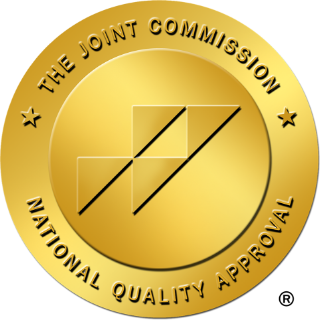Starting the journey toward recovery from substance dependency requires courage, determination, and the right medical support. Drug detoxification is the crucial first step in breaking free from addiction’s grip – a process that cleanses the body of harmful substances while managing withdrawal symptoms under professional care.
Professional detoxification at a specialized mental health hospital or treatment facility provides a foundation for successful recovery. This medically supervised process ensures safety during withdrawal, addressing both physical and psychological challenges that arise when substance use stops.
Think of professional detox as building a house – you need a solid foundation before constructing the walls and roof. Without proper medical supervision, attempting to detox alone can be dangerous and potentially life-threatening. Professional care offers:
- 24/7 medical monitoring
- Safe management of withdrawal symptoms
- Immediate access to emergency care
- Emotional support during a challenging time
This guide explores the essential aspects of drug detoxification, helping you understand why professional support matters for long-term recovery success. We’ll walk through the detox process, examine various treatment methods, and highlight how proper medical care can make the difference between relapse and sustained recovery.
Understanding Drug Detoxification
Drug detoxification is the natural process of getting rid of harmful substances from the body. It is an important first step in treating addiction, as it allows the body to cleanse itself while dealing with the immediate physical effects of stopping drug use.
The Science Behind Drug Detox
During drug detox, several things happen in the body:
- Toxins are physically cleansed from the body.
- The natural chemical balance in the body is restored.
- Vital body functions are stabilized.
How Substance Use Affects Brain Chemistry
Substance use disorders cause complex changes in brain chemistry, leading to physical dependence. When someone stops using drugs, their body has difficulty functioning without the substance, resulting in withdrawal symptoms that can vary in intensity:
- Physical symptoms: Nausea, tremors, sweating
- Psychological effects: Anxiety, depression, mood swings
- Behavioral changes: Sleep disturbances, irritability
Factors Influencing Withdrawal Intensity
The severity of withdrawal symptoms depends on several factors:
- Type of substance used
- Duration of addiction
- Amount typically consumed
- Individual health conditions
For instance, the withdrawal timeline for substances like fentanyl can be particularly challenging, highlighting the need for professional assistance during this phase.
The Role of Professional Detox Programs
Professional detox programs at mental health hospitals offer specialized care to address withdrawal symptoms. Medical teams closely monitor vital signs, manage complications, and ensure patient safety throughout the withdrawal process. This medical supervision is crucial for substances with potentially dangerous withdrawal effects, such as alcohol or benzodiazepines.
The Importance of Professional Detoxification
Professional detoxification in a mental health hospital setting offers distinct advantages over attempting to detox at home. While natural detox methods might seem appealing, they lack crucial medical support and monitoring that can make the difference between success and relapse.
Benefits of Medical Detox Programs
Medical detox programs provide:
- 24/7 medical supervision
- Immediate access to emergency care
- Prescription medications to ease withdrawal
- Proper nutrition and hydration support
- Safe, controlled environment
Risks of Unmanaged Withdrawal
The risks of unmanaged withdrawal can be severe – even life-threatening. Common complications include:
- Seizures
- Severe dehydration
- Heart complications
- Extreme anxiety and depression
- Hallucinations
Expertise in Handling Complex Cases
Professional detox centers employ trained medical staff who understand the complexities of withdrawal from different substances. They can anticipate complications and adjust treatment protocols accordingly. This medical expertise proves invaluable when dealing with:
- Multiple substance dependencies
- Co-occurring mental health conditions, as highlighted in this NIMH resource
- Pre-existing medical conditions
- Severe withdrawal symptoms
A Focused Recovery Environment
The structured environment of a professional detox facility removes access to substances and eliminates external triggers. This controlled setting allows patients to focus solely on their recovery while receiving comprehensive medical care tailored to their specific needs.
Understanding the Drug Detox Process
The drug detox process follows a structured timeline, typically lasting 5-10 days depending on the substance and individual factors. This critical phase marks the beginning of recovery, where the body eliminates toxins and adapts to functioning without drugs.
Physical Withdrawal Symptoms:
- Muscle aches and tremors
- Nausea and digestive issues
- Changes in blood pressure
- Sleep disturbances
- Sweating and fever
Emotional Changes During Detox:
- Anxiety and panic attacks
- Mood swings
- Depression
- Irritability
- Difficulty concentrating
Medical professionals at a mental health hospital play a vital role throughout the detox process. They monitor vital signs, manage complications, and adjust medications as needed. Psychological support runs parallel to medical care, with trained therapists helping patients navigate emotional challenges.
The detox process typically unfolds in three phases:
- Evaluation – Medical team assesses patient’s physical and mental health
- Stabilization – Active management of withdrawal symptoms
- Preparation – Building readiness for ongoing treatment
Specialized interventions might include:
- Medication-assisted treatment
- IV fluid therapy
- Nutritional supplementation
- Crisis counseling
- Behavioral support techniques
The Role of Professional Detox Centers in Recovery
Professional detox centers create a secure, controlled environment essential for a successful recovery journey. These specialized facilities operate similarly to a mental health hospital, providing comprehensive care and protection during the vulnerable detox phase.
Continuous Medical Monitoring
A dedicated medical team monitors vital signs 24/7, tracking:
- Blood pressure
- Heart rate
- Temperature
- Oxygen levels
- Mental state changes
This constant supervision allows healthcare providers to identify and address complications before they become severe. Medical professionals can quickly adjust treatment protocols based on individual responses and needs.
Substance-Free Environment
The secure setting removes access to substances and eliminates external triggers that might compromise recovery. Professional centers maintain:
- Controlled access points
- Security personnel
- Safe medication storage
- Emergency response protocols
Readiness for Emergencies
Emergency medical care remains readily available for unexpected complications. Detox centers maintain:
- Rapid response teams
- Life-saving equipment
- Direct hospital transfer agreements
- On-call specialists
These safety measures create a protective bubble where individuals can focus solely on their recovery without external pressures or risks. The structured environment combines medical expertise with specialized facilities to support the challenging transition through withdrawal.
Moreover, it’s important to note that these detox centers must adhere to certain regulations and standards to ensure the safety and well-being of their patients, further emphasizing the importance of choosing a professional detox center for recovery.
Treatment Methods in Professional Detox Centers
Professional detox centers use proven treatment methods to help individuals through withdrawal. These specialized facilities, functioning like a mental health hospital, take a comprehensive approach to address both physical and psychological aspects of detoxification.
Medication-Assisted Treatment (MAT)
- Methadone for managing opioid withdrawal
- Benzodiazepines to relieve alcohol withdrawal symptoms
- Anti-nausea medications for comfort
- Sleep aids to restore disrupted sleep patterns
Nutritional and Hydration Support
- Customized meal plans packed with essential nutrients
- IV fluid therapy to prevent dehydration
- Vitamin B and C supplementation
- Electrolyte replacement therapy
Therapeutic Interventions
- One-on-one counseling sessions
- Group therapy meetings
- Cognitive Behavioral Therapy (CBT)
- Mindfulness and stress management techniques
The combination of these treatment methods creates a holistic healing environment. Medical professionals closely monitor and adjust treatments based on individual responses, ensuring optimal comfort and safety throughout the detox process. Patients receive 24/7 care with regular vital sign checks and medication adjustments, establishing a stable foundation for their recovery journey.
The Connection Between Detox and Long-Term Recovery
Drug detox is just the beginning of a successful recovery journey. It is important to understand that detox alone is not enough to ensure long-term sobriety. Research shows that individuals who participate in comprehensive treatment programs after detox have significantly higher success rates in maintaining sobriety.
Why Aftercare Matters
After completing detox, it is crucial to have a structured aftercare plan in place. This plan serves as a roadmap for your recovery and helps you navigate the challenges that may arise. Here are some reasons why aftercare is essential:
- Continued Support: Aftercare provides ongoing support from addiction specialists, therapists, and support groups. This support system plays a vital role in preventing relapse and promoting healing.
- Skill Development: During aftercare, you will have the opportunity to develop essential life skills that are necessary for maintaining sobriety. These skills include stress management techniques, healthy coping mechanisms, and effective communication skills.
- Addressing Underlying Issues: Many individuals struggle with underlying mental health conditions that contribute to their substance use. Aftercare offers access to mental health treatment, allowing you to address these issues and develop healthier coping strategies.
- Accountability: Having regular check-ins with healthcare providers and participation in support groups creates accountability in your recovery journey. This accountability helps you stay committed to your goals and reduces the risk of relapse.
Key Components of Long-Term Success
While each person’s recovery journey is unique, there are certain key components that are essential for long-term success:
- Building a strong support network
- Developing healthy coping mechanisms
- Creating sustainable lifestyle changes
- Regular check-ins with healthcare providers
- Participation in support groups
Statistics reveal that patients who maintain consistent engagement with support systems show a 60% lower relapse rate compared to those who attempt recovery alone. This highlights the vital connection between initial detox and ongoing therapeutic support.
The journey from detox to lasting recovery requires dedication, professional guidance, and a comprehensive treatment approach. Each step builds upon the foundation established during detox, strengthening resilience and promoting sustainable healing.
Understanding Drug Detox

Your journey to recovery starts with a single step – reaching out for professional help. Pacific Breeze Recovery stands ready as your trusted partner in this transformative journey. Our specialized mental health hospital combines medical expertise, clinical excellence, and holistic approaches to create personalized recovery paths.
Take charge of your future today:
- Access our comprehensive addiction treatment programs
- Benefit from our expert medical and therapeutic team
- Experience our supportive, healing environment in Southern California
If you’re struggling with depression, we offer effective treatment options that can help you find hope and support on your path to recovery. Additionally, for those facing the challenges of both addiction and mental health issues, our dual diagnosis treatment provides integrated care to address these intertwined conditions.
🌊 Ready to begin your recovery journey? Contact us today to learn more about our programs. Your path to lasting recovery awaits.





